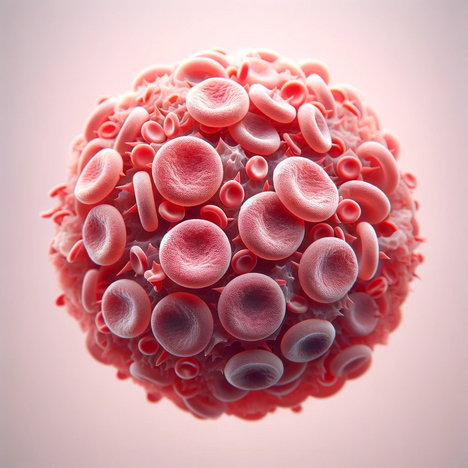Prostacyclin

The health of your four-legged friend is the focus of your care. In this context, prostacyclins, a group of biologically active lipids, play an essential role. They influence various physiological processes and can have both beneficial and detrimental effects on your dog's health. In this article, we take a deep dive into the world of prostacyclins, discussing their function, benefits and potential risks.
What are prostacyclins?
Prostacyclins, scientifically known as prostaglandin I2 (PGI2), are part of the eicosanoid family, a group of compounds synthesized from arachidonic acid. They play a central role in a variety of bodily functions, including the dilation of blood vessels, inhibition of platelet aggregation (and thus blood clotting) and inflammatory reactions. Their diverse effects make them an important factor in your dog's health regulation.
Benefits of prostacyclins
Improvement of blood circulation
Prostacyclins help to dilate the blood vessels. This improves blood circulation in your dog's body, which can be particularly beneficial for dogs with cardiovascular disease. Optimized blood circulation also supports the supply of oxygen and nutrients to organs and tissues.
Protection against blood clots
Through their ability to inhibit platelet aggregation, prostacyclins help to reduce the risk of blood clots. This is particularly important for dogs that are prone to thrombosis or already have cardiovascular disease.
Anti-inflammatory effect
Prostacyclins play a role in modulating inflammatory processes in the body. They can help to reduce the intensity and duration of inflammation, which is particularly important in chronic diseases and pain conditions.
Possible disadvantages and risks
Uncontrolled bleeding
As prostacyclins inhibit blood clotting, their excessive production or external administration can lead to an increased risk of uncontrolled bleeding, especially during injuries or surgical procedures.
Gastrointestinal problems
In some cases, prostacyclins can cause gastrointestinal problems such as diarrhea and stomach ulcers, especially with long-term use of medications that affect prostacyclin production.
Interaction with other medications
Prostacyclins can interact with various medications your dog may be taking. This can reduce the effectiveness of these medications or increase unwanted side effects.
Prostacyclins are powerful biochemical players in your dog's body with the potential to affect their health in a variety of ways. While they offer numerous benefits by improving blood circulation, protecting against blood clots and having anti-inflammatory effects, they also carry risks, especially when used uncontrolled or in interaction with other medications. In the world of canine health, knowledge is power, and a deeper understanding of prostacyclins can help you make informed decisions that promote your dog's well-being.
If you notice any signs of hypersensitivity or poisoning in your dog, you should see your vet immediately. We are not a substitute for a vet, but we try to be as accurate as possible. Every dog reacts differently and we recommend you get a second opinion or consult your vet if in doubt.
Stay healthy and take good care of your four-legged friend!😊